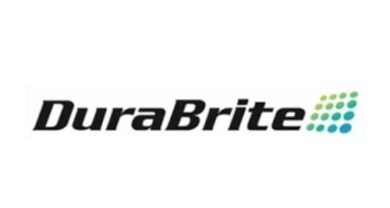BoatUS offers tips on peer-to-peer rentals
ALEXANDRIA, Va., – Airbnb may a popular “peer-to-peer” lodging site on the web, but if you want to rent a boat in your local area or away, you’ve got options, too. Boatbound.com, Boatsetter.com and Cruzin.com are just a few of the new crop of online websites offering a chance to rent a boat for the day or weekend. These services, which connect private boat owners to renters, can help owners recoup some expenses, and can also give non-owners a chance to get on the water with friends without the cost of full-time ownership. So what do you need to know? Boat Owners Association of The United States (BoatUS) has some information for both boat owners and renters.
- Renters do not want boats that are not safe and or can barely get out of the marina, so these services are often better suited to newer vessels less than 10 years old. Older, larger or faster boats may require a survey or inspection. Rental costs vary widely based on boat size and location, and renters typically are required to have some boating experience as well as a deposit.
- These peer-to-peer boat rental websites generally handle every part of the transaction, including taking deposits and payments. They typically take 30%-40% of the rental fee, which covers overhead, profit, as well as insurance and on water towing services (more on both of those in a second…read on).
- For boat owners, most boat insurance policies don’t provide coverage during the rental period and some companies may not provide coverage at any time simply if you list your boat with a rental program. If you happen to own and insure your boat but desire to rent another, your insurance company (including BoatUS Marine Insurance) may offer a temporary endorsement for liability coverage while operating the rental boat – but damage to the rental boat still is not covered. That’s why these “peer-to-peer” boat rental companies often provide additional insurance coverage. However, it’s up to owners – and renters – to read the fine print. For owners, know what happens if your boat is damaged, the claims process, how depreciation may figure in, and, in the event of total loss, how the insurance will value your boat. For renters, ensure you are OK with the level of liability coverage being offered during the rental, know how much you would have to pay if you damage the boat, and whether injuries to both you and your passengers would be covered.
- TowBoatUS and Vessel Assist towing fleets provide on water towing and assistance service to some peer-to-peer rental services at no additional charge to the renter or owner. For the renter that means simply calling BoatUS’ 24-hour nationwide dispatch (800-391-4869) if there is a breakdown.
- Renters need to ask about any other costs or fees, including fuel or other charges like pump-outs. They should also clarify with the owner what happens if the boat breaks down and becomes unusable.
- Boat owners have the full right to say “no” to a renter, starting with an initial phone call. BoatUS member Bob Kellet, who has successfully rented his 30-foot sailboat, says owners are in full control of the process, from pricing to vetting renters. After speaking to a potential renter on the phone, if he’s comfortable, Kellet will meet at his boat for a full run-through. He may even take the renter out for a few minutes to show how everything works.
- Kellet also suggests having a detailed instruction guide for the boat’s equipment and a step-by-step guide for things like starting the engine. Be sure to include safety gear.
- Having a walk-through, pre-rental checklist is good for both parties, as is taking a few date-stamped photos showing the condition of the vessel.
- While there is a certain element of trust, owner and renter reviews tend to weed out bad apples quickly, so be sure to check the renter’s history or the owner’s reviews from past renters. “Reviews are the best indicator of whether there will be a positive rental experience,” says BoatUS Consumer Affairs Director Charles Fort, who adds, “These services may also help those looking to buy a certain boat to try it out, if you will, before they purchase.”
- One man’s experience: BoatUS Member Kellet said he was apprehensive the first few times he rented his sailboat to a stranger, but after a couple rentals he realized the renters cared about his boat, too, and they were there for the same reason: a love of the water and boating. A couple rentals a month easily pays his Seattle, Washington, area moorage fees. The only downside Kellet reports are scheduling conflicts when he’d like to use the boat himself.
For more, see the BoatUS Magazine story, “Is Peer-to-Peer Boating for You?” at BoatUS.com/thinkingofrenting.





Boat owners who have financing on their vessels will discover that renting or leasing of their vessel is strictly prohibited under the terms of their finance contract. The liability and physical damage endorsement for renting may be available through some insurers, but not all and is subject to the mortgage holder’s consent, which will be withheld. Then, there is the matter of reporting the income derived from the rental – will the owner(s) form a business entity as a liability limiter and seek depreciation? That goes right back to the lienholder allowing such an arrangement, which may entail a change of ownership, sales or excise tax, revised licensing or Documentation, etc. While peer-to-peer rental seems attractive it will not be an option for those owners who are financing the purchase of their boat..
Section 9. of the article seems to be a violation of privacy laws – obtaining, retaining, disseminating, sharing or publishing non-public information regarding individuals. The ‘reviews’ that will ‘weed out bad apples quickly’ may easily touch upon an FCRA violation.
I agree, on the surface, Peer-to-peer boat rental appears to be a great way for a boat owner ot offset some or all of his boat ownership expenses. However, it is imperative that the boat owner read his marine insurance policy carefully, as the policy will exclude coverage for renting or leasing of the vessel. In addition, it is a valid point made by Mr Pitts, that a finance contract will stricly prohibit renting or leasing. The lender may agree to refinance, at a higher interest rate with a predetermined equityposition. As a renter, your marine insurer may be able to provide liability insurance coverage, but you would still be at risk for damage to the rental boat. My advice is to read the fine print and check for coverage options with your current marine insurer. It’s not as simple as it appears.